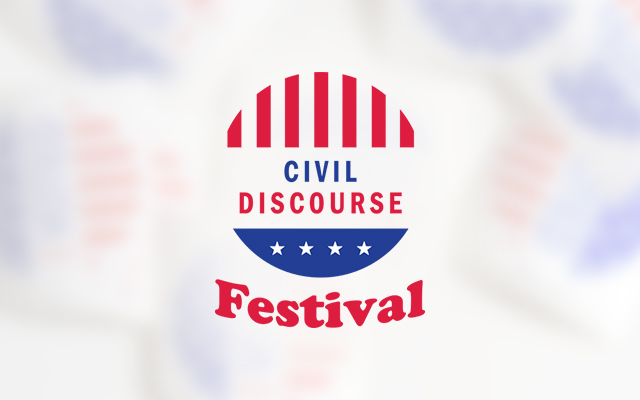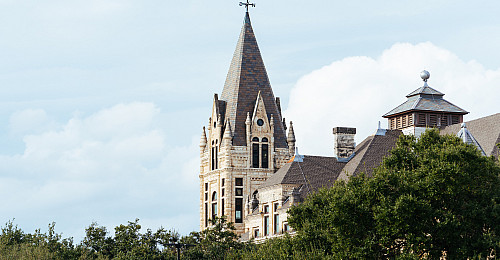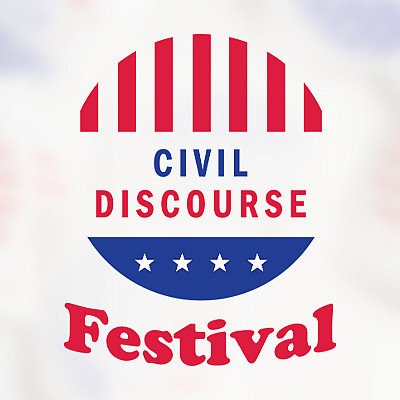News
Southwestern University Warmly Welcomes Civil Liberties Expert Nadine Strossen during the Civil Discourse Festival
February 17, 2020
February 17, 2020
Open gallery

This March, Southwestern University will launch what student organizers hope will become an annual campus event: the Civil Discourse Festival. Headlining the two-day event will be Nadine Strossen, a leading expert in constitutional law and human rights who was the first woman and the youngest person to lead the American Civil Liberties Union (ACLU). The festival will include multiple opportunities for students, faculty, and staff to engage with Strossen and will culminate in an election watch party on Super Tuesday, March 3, 2020.
Bridging the political divide in the year of a presidential election
The festival is organized by the SU Project for Civil Discourse, whose leaders represent both sides of the political divide working together: Teresa Cropper ’20, former president of the College Democrats; Davin Masur ’21, former secretary of the College Republicans; Laura Rativa ’20, president of the College Republicans; and Olivia Stankus ’20, current president of the College Democrats. As interns for the project, the students are tasked with promoting civil discourse and free speech on campus as well as developing programming to support productive political discussion and develop empathetic listening, from table talks to voter-registration efforts.
For all four coordinators, there is special significance to hosting the festival in 2020, the year of a federal election. “With the presidential election, there [are] a lot of things happening,” says Cropper, a history and political science double major with an environmental studies minor. “In 2016, I think there was a big lack of civil discourse that left some tension, so we want to make sure that in 2020, people can go about things civilly.”
Stankus agrees. “One of the challenges of civil discourse is bringing together people of different opinions. The election is one major event of the year where the coalition is forced: you have to talk to the other side; you have to communicate,” the history and political science double major explains. “2020 is a new decade. We want to start Southwestern off on the right foot with civil discourse.”
Cropper and Masur believe that an additional benefit of hosting the event on Super Tuesday is that it may encourage voter participation. “In 2018, we held a postelection party, and it was exciting because it incentivized people to vote, especially since we had a voting booth on campus,” Cropper recalls. “So this could be a good driver in turning out people to vote, too.” Masur adds that he hopes the festival will improve voter engagement not just at the national level but also at the local. “Obviously, when you think about politics, you think about big, national-level politics, but we’re trying to show people how easy it is to get involved and that there’s money to be made [working in politics] at the local level. There’s a lot of internship and job opportunities here, there are opportunities to just network in local politics, and I’ve experienced that,” he describes. “Your vote counts the most in a local election more than in a national election, and we’re encouraging people to see that.”
The schedule of events
A dinner with the College Democrats and the College Republicans kicks off the festival on Monday evening. On Tuesday, polling for the Texas 2020 primaries will take place in the Howry Center. Student organizers and faculty and staff will share their thoughts about the state of U.S. politics over lunch, and Strossen will visit Assistant Professor of Political Science Emily Sydnor’s Public Opinion course. She will then deliver a lecture—followed by what promises to be a dynamic Q&A—on the topic of hate speech, discussing why Supreme Court justices, digital-media companies, racial-justice advocates, and human-rights activists have all argued against censoring hate speech in the name of promoting equality, dignity, diversity, inclusivity, and societal harmony. Afterward, the Southwestern community can enjoy live music and dinner care of local food trucks on the Academic Mall, where staff from the Center for Career & Professional Development will be on hand to discuss opportunities for SU students to engage in internships related to politics, policy, and law. In addition, various SU student organizations will be hosting booths; Mosaic will be coordinating a group activity to promote civil discourse; and MOVE TEXAS, a nonpartisan, nonprofit, grassroots organization, will be registering students and other community members to vote. An election watch party—with Strossen available for Q&A—will begin at 7:00 p.m. in the Bishops Lounge and end when the primary election and caucus votes are counted.
Rativa, a political science and communication studies double major who will be attending law school after graduating this spring, looks forward to “getting everyone involved on campus”—including not just Southwestern students, faculty, and staff but also the local Georgetown community. “They get involved with SU Democrats and Republicans, but we want SU to impact the local community’s discourse as well.”
Stankus is eager to engage with Strossen in the various venues, but she sees equal value in hearing what her fellow undergraduates have to say as well. “We’ll get to hear from the students about their questions, the issues that are bothering them, and what they want to know more about. This will help us see more of what we can do in the future.”
Masur ’21 believes that the festival will help give the SU Project for Civil Discourse more visibility compared with the smaller events the group hosted last year, which will encourage greater participation and discussion. He hopes that the festival will be a valuable learning experience for community members. He says that as a communication studies major who is minoring in history and data science, he is used to participating in civic conversation, but he wants all students to “gain those skills of speaking on controversial issues … and engaging in productive political dialogue because it’s important for everybody.”
An advocate for civil liberties and human rights
Strossen is the John Marshall Harlan II emerita professor of law at New York Law School and a leading expert in constitutional law and human rights. She is the former president of the American Civil Liberties Union (1991–2008) and now serves on the advisory boards of the Electronic Privacy Information Center (EPIC), the Foundation for Individual Rights in Education (FIRE), and Heterodox Academy. When Strossen stepped down as ACLU President, three ideologically diverse Supreme Court justices participated in her farewell luncheon: Ruth Bader Ginsburg, Antonin Scalia, and David Souter.
The National Law Journal has named Strossen one of America’s 100 most influential lawyers, and several other publications have named her one of the country’s most influential women. Her many honorary degrees and awards include the American Bar Association’s prestigious Margaret Brent Women Lawyers of Achievement Award (2017).
Strossen has made thousands of public presentations before diverse audiences around the world, including on more than 500 campuses. A frequent media commentator, she has published widely in both academic and general-interest publications. Her 2018 book, HATE: Why We Should Resist it With Free Speech, Not Censorship, earned praise from experts across the political aisle, including progressive Harvard University professor Cornel West and conservative Princeton University professor Robert George. Her earlier book, Defending Pornography: Free Speech, Sex, and the Fight for Women’s Rights, was named a New York Times Notable Book of 1995.
“I’m really excited about the speaker,” Rativa remarks. “She’s not coming to talk about a particular party or to talk about particular views; she’s coming here to promote civil discourse.”
Schedule of events open to the public
Monday, March 2, 2020
7:30 p.m.: Dinner with College Republicans and College Democrats (Dorothy Lord Center Lounge)
Tuesday, March 3, 2020
4:00 p.m.–5:15 p.m.: Lecture and Q&A (McCombs Ballrooms)
5:30 p.m.–7:00 p.m.: Dinner on the Mall with local food trucks
7:00 p.m.–?: Election watch party and Q&A with Nadine Strossen
These events are free and open to the public.
















